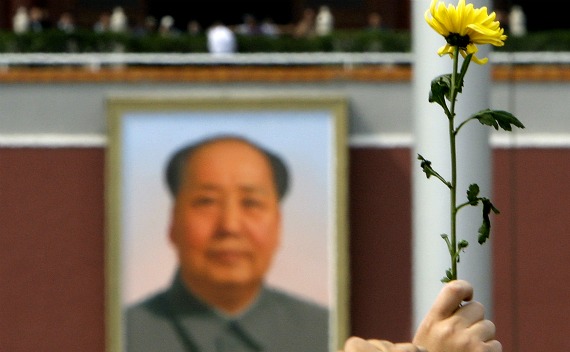China’s Information Warfare
More on:

As June 4 approaches, I am struck by how many discordant voices we hear in China today and how mightily the Chinese people are struggling to reckon honestly with their past and figure out their path forward. In just the past few weeks, there have been some striking examples of a hundred flowers blooming.
- The renowned economist Mao Yushi had a short piece in Caixin online in which he advocated that the Chinese people understand Mao Zedong as a man rather than as an infallible deity, underscoring in the process some of Mao Zedong’s less salutary traits. With this brief opinion piece, he inspired a firestorm of controversy: thousands of people signed a petition for him to be put in jail. Thus far, Beijing has resisted such calls.
- The grisly death of an activist herder in Inner Mongolia at the hands of Han Chinese has given rise to widespread protests throughout the region, decrying the intrusion of Han Chinese into traditional Mongolian culture and livelihood. That in itself is not surprising. What is surprising is that the Global Times, generally a fairly conservative newspaper, gently rebuked Beijing for trying to limit reporting on the situation and called for shining light on what happened as a means of better addressing the problem.
- A gallery in Beijing left a blank space in an exhibit for Ai Weiwei. Shortly thereafter the entire exhibit was shut down. Need more be said?
- In the category of “too good to be true”—there are reports that the Chinese government has reached out to the families of the 1989 Tiananmen Square victims to offer them financial compensation. If true, it is a step in the right direction; of course what really awaits is the much needed process of historical reconciliation.
- And finally, in the category of “Ripley’s Believe it or Not,”—Li Congjun, President of Xinhua News Agency, wrote an opinion piece calling for global governance in the media, a “media UN.” In a rambling missive, with odd analogies to bridge and ping pong, Mr. Li alternates between pushing for rules to govern international communication on the one hand and “openness and transparency to promote the building of an open society” on the other. My favorite recommendation, however, is that “media from all countries should have the right to participate in international communication on equal terms.” Now that the Chinese media have paid news inserts in the Washington Post and New York Times, will the Chinese reciprocate and allow unhindered access for U.S. media in Chinese newspapers?
I think Mr. Li perfectly reflects the transition point at which China’s leaders find themselves today—desiring the benefits of an open society but clinging to the comfort of trying to control the distribution of those benefits. One hundred flowers can’t bloom if you keep trying to pull up their roots.
More on:
 Online Store
Online Store
